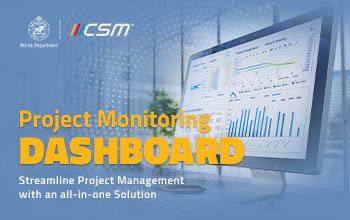Cloud computing has emerged as a transformative force in the global business ecosystem. According to Statista, the global cloud computing market is projected to grow from $546 billion in 2022 to over $832 billion by 2025, underscoring its rapid adoption across industries. Advancements in Software drive this growth as a Service (SaaS), Infrastructure as a Service (IaaS), and Platform as a Service (PaaS), which provide businesses with cost-effective and scalable solutions. While North America and Europe have traditionally dominated the cloud computing market, Africa is catching up, driven by unique challenges and opportunities. For African businesses, the cloud is about enhancing operational efficiency and a gateway to overcoming infrastructural bottlenecks and fostering innovation.
The Rise of Cloud Computing in Africa
.jpg)
African businesses increasingly adopt cloud computing to address the continent's infrastructural and economic challenges. Unlike traditional IT infrastructure, which requires significant upfront capital investment, cloud solutions offer a pay-as-you-go model. This approach particularly appeals to small and medium-sized enterprises (SMEs), which comprise a substantial portion of the African business landscape. Cloud computing enables these businesses to access world-class technology without the high costs of maintaining physical servers and IT infrastructure.
Moreover, cloud computing's scalability and flexibility align well with Africa’s dynamic and often unpredictable markets. Businesses can scale their operations up or down based on demand, ensuring that resources are used efficiently. This agility is critical for enterprises like e-commerce, where customer demand can fluctuate significantly.
Key Drivers of Cloud Adoption
One of the primary drivers of cloud adoption in Africa is the increasing mobile internet penetration. According to the GSMA, Africa will have over one billion mobile subscriptions by 2024, with mobile broadband accounting for a significant portion of internet access. This widespread connectivity allows businesses to leverage cloud services, even in areas lacking traditional infrastructure.
Additionally, the COVID-19 pandemic acted as a catalyst for cloud adoption in Africa. The sudden shift to remote work and online collaboration tools such as Microsoft Teams, Google Workspace, and Zoom highlighted the importance of cloud-based solutions in maintaining business continuity. Industries that were initially slow to digitize, such as healthcare and education, quickly adopted cloud platforms to adapt to the new normal.
Sectors Leading Cloud Adoption
Several sectors in Africa are at the forefront of cloud computing adoption. The financial services industry, for example, has embraced cloud technology to power mobile money services and digital banking platforms. Companies like Flutterwave, Paystack, and M-Pesa rely heavily on cloud solutions to process millions of transactions securely and efficiently.
The healthcare sector is also seeing increased cloud adoption. Startups like Helium Health use cloud platforms to digitize patient records and improve service delivery in under-resourced areas. Similarly, educational institutions are leveraging cloud-based e-learning platforms like Google Classroom and Moodle to expand access to education across the continent.
In the e-commerce sector, platforms like Jumia and Konga depend on cloud services to manage high website traffic, optimize inventory, and deliver seamless customer experiences. These companies illustrate how cloud computing can enable businesses to operate at scale while remaining agile.
Challenges Facing Cloud Adoption
.jpg)
Despite its benefits, cloud computing adoption in Africa is not without challenges. Limited internet penetration in rural areas remains a significant hurdle. While urban centers enjoy relatively good connectivity, businesses in remote regions struggle to access the reliable internet required for cloud services.
Regulatory hurdles also pose challenges, particularly data sovereignty laws in countries like Nigeria and South Africa. These laws require businesses to store data locally, complicating the adoption of international cloud solutions and raising operational costs.
Another significant barrier is the skills gap. Many African businesses lack access to IT professionals with expertise in cloud computing, which can slow implementation and increase reliance on external providers. Cybersecurity concerns also remain critical, as businesses worry about data breaches and the safety of sensitive information stored on cloud platforms.
The Role of Global Cloud Providers
Global cloud providers like Amazon Web Services (AWS), Microsoft Azure, and Google Cloud are investing heavily in Africa to address these challenges. For instance, AWS has established data centers in South Africa, while Microsoft has launched Azure regions in South Africa and Kenya. These investments aim to reduce latency, comply with local regulations, and build trust among African businesses.
In addition to infrastructure, these providers are also investing in skills development. Initiatives such as AWS’s re/Start program and Microsoft’s Africa Development Center aim to equip Africans with the technical skills to harness cloud technology effectively.
Case Studies: African Businesses Leveraging Cloud Computing
.jpg)
- Safaricom (Kenya): Safaricom, the telecom giant behind M-Pesa, utilizes cloud platforms to power its financial services, ensuring scalability and secure data handling.
- Andela (Pan-African): Andela, a company connecting African tech talent with global opportunities, uses cloud services to manage distributed teams and enable seamless communication.
- Nigerian Banks: Central banks in Nigeria, such as GTBank and Access Bank, have integrated cloud solutions to enhance customer service through mobile and online banking platforms.
Future of Cloud Computing in Africa
The African cloud computing market is expected to grow significantly, reaching over $15 billion by 2028, driven by investments from global tech giants like Microsoft, Amazon Web Services (AWS), and Google. These companies are setting up regional data centers in South Africa, Kenya, and Nigeria, reducing latency and ensuring compliance with local regulations.
Additionally, government initiatives, such as the African Union's Digital Transformation Strategy for Africa (2020–2030), aim to promote cloud adoption as part of the continent’s broader digital transformation agenda.
Conclusion
Cloud computing unlocks new possibilities for African businesses by reducing operational costs, improving scalability, and fostering innovation. However, addressing challenges like internet penetration, cybersecurity, and skills gaps is crucial for maximizing its potential. As investments in infrastructure and talent grow, cloud adoption is set to play a pivotal role in Africa's journey toward becoming a digitally driven economy.
By staying informed and investing strategically, African businesses can leverage cloud technology to compete globally and create unique solutions tailored to the continent's needs. Using the Cloud, the development and implementation of transaction management and Claim Processing System has been successful in BSKY (Biju Swasthya Kalyan Yojana) Odisha by CSM Technologies. The development/customization, configuration, and implementation of Management Information Systems (MIS) and Activity Tracking Systems (ATS), along with 5 years of Hosting and support on Azure for OMC by CSM Tech using Cloud became the most successful project in CSM’s history.
























































We will verify and publish your comment soon.